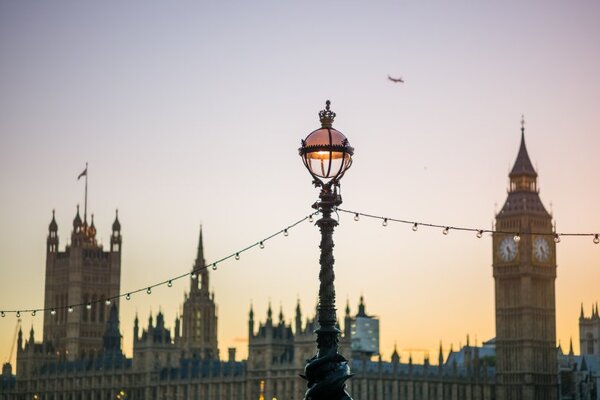The Big Question: Is it time for a change of government?
 James Chapple
James ChappleWith prime minister Rishi Sunak compelled to call an election within the next 12 months, when can we expect a poll – and what’s at stake for travel?
At TTG, we believe the exchange of ideas is key to driving progress throughout the industry. Our Big Question series of features continues in January with a frank assessment of the fractured political landscape within which travel must operate.
The UK’s travel and tourism industry was rightly disappointed by the government’s – at best – passing regard for its wellbeing during the pandemic. What support existed was rarely tailored, although schemes such as furlough – as well as various loans, grants and tax breaks – undoubtedly ensured failures numbered in the dozens rather than the hundreds.
But few ministers, at least publicly, took a keen interest in the specific needs of the travel and tourism sector – both outbound and inbound – with hospitality, and to a lesser extent aviation, getting the lion’s share of Westminster’s attention. And then there was Grant Shapps.
So with a general election likely in the spring or the autumn, this month we ask simply: is it time for a change of government? Would a change be in travel’s best interests? Would it create new opportunities to reset relationships with Whitehall, Westminster and the devolved administrations? Or would it tear up the continuity travel has worked hard to achieve?
What do you think? Join in the debate in the comments section below, or email feedback@ttgmedia.com. Alternatively, head to one of TTG’s social media channels to get involved.
'Travel has never been fully strategically aligned with Westminster'
The travel industry has shown its resilience, once again, by getting through Covid largely in one piece, albeit with many agents and operators emerging from the pandemic saddled with debts that will prove a burden for years to come. Many would say this is stealth, rather than design, by the government.
As chief executive of a fast-growing luxury-focused tour operator and agency, I have a broad insight into the industry’s dialogue with the government, and the issues travel had attempting to speak with one voice.
While the majority of industries are controlled by one single government department or ministry, the responsibility for outbound tourism is spread across many, and that has added complexity to lobbying efforts.
In my 25 years in this industry, I can’t remember a time when there was full strategic alignment with Westminster. But that isn’t entirely the government’s fault; travel and tourism is a broad church, and stakeholders’ ideal outcomes differ.
A change of government will only improve things if it chooses to prioritise travel and tourism, which is unlikely owing to the optics around emissions and sustainability – however unfair that is.
We need to recognise the government did do some things to support our sector – backing refund credit notes through the CAA kept the industry solvent, as did loans to businesses and furlough payments. They listened, then chose to prioritise other areas.
Maybe travel and tourism spend streaking ahead of other sectors last year [2023] in terms of growth will highlight [to the government] the importance of holidays to the public, even if its contribution to GDP and support for 500,000 jobs doesn’t. Let’s hope the next government is listening more closely.
Alistair Rowland is chief executive of Blue Bay Travel.
'Government's lack of understanding of travel was clear during Covid'
With the chance of a change in government on the horizon, it becomes increasingly imperative we bolster our lobbying efforts if we are to elevate the industry’s profile – not only within Westminster, but also across the devolved nations, as well as draw political attention to the myriad issues facing our sector.
The acting minister for tourism, John Whittingdale MP, recently said the industry’s previous failure to speak to the government with a single voice was “a challenge identified”.
I believe things have changed as a result of the concerted efforts of Aito and the Advantage Travel Partnership over the past 12 months, but while it’s gratifying to read his comments, our work is far from done.
With Abtot joining our collective effort, our lobbying power and impact will be significantly enhanced. We can make an even stronger and more effective case for the UK outbound travel industry.
During the pandemic, the lack of recognition and understanding by the government of our industry was clear – and we ignore this going forward at our peril. Unlike our colleagues in the aviation, hospitality and cruise sectors, all of whom have established and robust lobbying bodies, the UK outbound travel industry has not made the same investment and so lacks the same clout or visibility.
We need to align across sectors on key business issues and speak with clarity on industry-related matters. Lobbying is about our ability to influence and shape policies before the policy comes to fruition. Regardless of which government is in power, it’s the industry’s job to educate and ensure it does so in order to thrive for future generations to come.
Julia Lo Bue-Said is chief executive of the Advantage Travel Partnership.
'A cohesive voice for travel and tourism has never been more important'
In short: no, we don’t need a change of government. We can’t pin the future prosperity of the second- largest export sector – inbound tourism – on a specific government. But we can ensure our industry is ready for change and embrace whoever is in power.
Research by Abta and UKinbound has shown inbound tourism to the UK has the ability to grow by 20% by 2027, which would bring immediate and significant economic growth to all four corners of the UK, something we hope would be championed by all political parties.
The industry can deliver this growth and, with government support, exceed it. Reintroducing tax-free shopping, creating a new low-cost, five-year visitor visa, tweaking the earnings threshold for skilled international workers coming to the UK – we need to continue highlighting policies that damage our industry and present workable solutions, with data-led evidence that benefit the whole of the UK. This will continue to be the case no matter who is at Number 10.
In times of change, a cohesive voice for travel and tourism will be even more important. What benefits inbound tourism most often also benefits UK outbound and domestic tourism. It’s vital we continue to highlight these links to government, and work with other associations and bodies to present a united stance.
It’s almost certain that in 2024, we’ll have a new tourism minister, whoever wins the election, plus new ministers in the Department for Transport, Home Office, HM Treasury and the Department for Business and Trade. Our job, however, will remain the same: to educate them, and showcase the value and the many opportunities inbound tourism brings to the UK.
Joss Croft is chief executive of UKinbound.
The Big Question by TTG
The Big Question is a monthly feature from TTG taking on some of the burning issues facing travel through expert commentary, insight and debate. While it's not designed to be adversarial, it won't flinch from placing a spotlight on some often uncomfortable topics travel – like it or not – will one day have to reckon with.
- Is the 'S' word starting to put customers off?
- Is direct action targeting commercial travel ever justifiable?
- Is it time to rebrand the travel agent?
- Does travel have an ageism problem?
- Has travel added too much capacity for summer 2024?
- Can celebrity endorsements ever be truly responsible?
- Do women have equal opportunity to progress in travel?
- Should the cruise sector shout about lower prices?
- Is it time for a change of government?
- Has the pandemic changed peaks for ever?
- Is it finally time to turn APD into an environmental tax?
- Does all-inclusive value come at too high a price for the planet?
- Can cruise sail ahead of land-based breaks?
- Should travel companies still be selling captive animal attractions?
- Can aviation do more to help disabled travellers?
- Is there a future for private jets in travel?
- Should agents start charging for their time?
- Is it finally time to reform the Atol scheme?
- Should we be flying during a climate crisis?
Sign up for weekday travel news and analysis straight to your inbox

James Chapple
Supplier Directory
Find contacts for 260+ travel suppliers. Type name, company or destination.
















